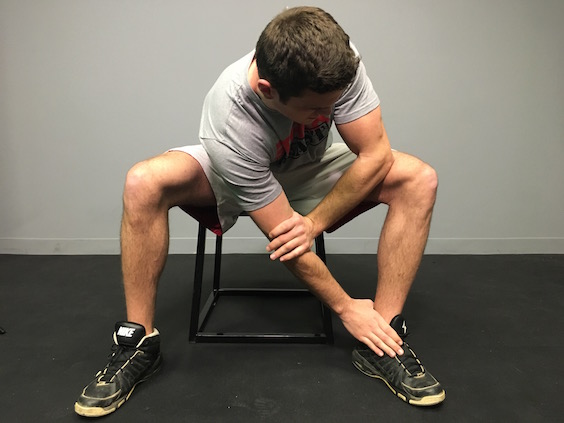Do male athletes have eating disorders?
Eating disorders are not just a female athletes’ issue. According to an article in the Journal of Clinical Sports Psychology (1), an estimated 8% of male athletes, as compared to 33% of female athletes, also have serious eating disorders (anorexia, bulimia, binge eating, and compulsive exercise). Another 19% of athletic guys likely have abnormal eating behaviors. If anything, these estimates are low because eating issues in males can be challenging to identify. Many go unnoticed and untreated. It’s time to take this topic out of the closet!
Male athletes live in an environment that can easily trigger disordered eating. Triggers include:
- Feeling social pressure to have an “athletic physique”
- Striving to fit social media’s portrayal of the “perfect male body”
- Constantly comparing oneself to others
- Being competitive by nature and aspiring to be better than others.
The end result: some male athletes do extra training and become extra vigilant about their food intake to optimize their body shape and size. Teammates often observe other team members who “eat healthy” and start to wonder. “If that guy cuts out XXX (let’s say, sugar or red meat), then maybe I should too…” By eliminating XXX, the athlete starts sliding down that slippery slope into a full-blown eating disorder. It can happen so easily, quickly, and unknowingly.
Social Pressures:
Advertisements and social media teach men they should look lean and muscular. Does anyone inform the guys the images are photoshopped? No! And no one teaches guys that some of the male models use performance-enhancing drugs to help them look so buff. As a result, male athletes can end up believing their bodies are “flawed” — and they succumb to eating less and exercising more to fix their flaws. They may not even know their eating and exercise patterns are abnormal. Don’t all serious male athletes live on salad to be lighter, leaner, and (supposedly) better? Unfortunately, leanness and lightness are not the keys to success.
Why do men get eating disorders in the first place?
An eating disorder gives a sense of control. While you may not be able to cannot control your genetics or what others think of you, you can control your food, exercise, and weight. Given the (incorrect) belief the lighter athlete is, the better athlete, guys can feel compelled to do whatever it takes to be the fastest runner on the team, or have the least amount of body fat. Unfortunately, when one athlete restricts his food intake, another athlete can become motivated to limit his food even more. (“If Joe stops eating carbs at dinner to lose weight, I’m going to skip them at every meal….”) Competitive males can be easily attracted to extremes.
Initially, extreme eating and exercise patterns might help an athlete improve, and with that comes a lot of praise. (“The healthiest eater on the team is our best runner.”) Positive comments from teammates, coaches, friends, and family members are validating, confidence-building, and seen as a positive sign that their extreme efforts are paying off. That is, until the body starts falling apart. (Athlete + too much exercise + too little fuel = injuries, sooner or later)
A male athlete who hears a negative comment, such as, “Looks like you’ve gained some weight?” can be easily triggered to work harder to correct the problem. While eating less and training more might look like praise-worthy behaviors, these extremes can destroy one’s quality of life, to say nothing of dramatically increasing the risk of getting a stress fracture, tendonitis, pulled ligament, or other injury associated with underfueling and/or poor nutrition.
Seeking Help
Very few male athletes seek treatment for their eating disorders, believing they are not “sick enough” to justify getting help. They likely have no idea they are even damaging their physical and mental health. Most are unaware that their thoughts or behaviors are disordered.
Because most guys don’t talk about their problems, they suffer in silence. If a male athlete does try to explain what’s going on to a teammate, the teammate likely has no idea what the athlete is talking about. This athlete feels embarrassed and ashamed — and ends up choosing to hide the eating disorder rather than share his personal story.
Male athletes who have been performing well (to date) may not even know they have a problem if no one expresses concern about their restrictive dieting and excessive exercise. They just get praise for how dedicated and disciplined they are. These positive comments must mean what they are doing is working and paying off (in the short term), right? Wrong. Injuries will inevitably take their toll.
In a survey of eight men with eating disorders, only four sought help—and that was when their quality of life went down the tubes. For example, one subject reached out for help after he passed out on the side of the road during a long run. Others acknowledged their loss of sexual interest (a side effect of under-fueling). Their anxiety, depression, and extreme fatigue just weren’t worth the effort anymore.
What can you do to minimize eating disorders?
If any of the above information hits home, please understand that to be the best athlete you can be, you want to:
- Fuel wisely and focus more on performance and health than on a number on the scale;
- Limit the time your spend on social media sites that focuses on super-fit bodies. (You’ll only end up feeling worse about yourself.)
- Notice you are able to train and compete better when you eat well and train appropriately (instead of compulsively).
Coaches, trainers, and sports medicine professionals need to be educated about warning signs of eating concerns (skipping team meals, complaining about body fatness, avoiding carbs). Just like a broken bone, an eating disorder is an injury—a mental health injury. Male athletes deserve to be able to comfortably seek help instead of suffering alone and in silence.
Reference:
1) Freedman, J, S. Hage, and P. Quatromoni. Eating Disorders in Male Athletes: Factors Associated with Onset and Maintenance. J Clin Sports Psychology 2021
Sports Nutritionist Nancy Clark, MS, RD counsels both casual and competitive athletes in the Boston area (Newton; 617-795-1875). Her Sports Nutrition Guidebook has strong sections on how to manage dieting gone awry. For information about her book and online workshop, please visit www.NancyClarkRD.com.
RECOMMENDED FOR YOU
MOST POPULAR
Do male athletes have eating disorders?
Eating disorders are not just a female athletes’ issue. According to an article in the Journal of Clinical Sports Psychology (1), an estimated 8% of male athletes, as compared to 33% of female athletes, also have serious eating disorders (anorexia, bulimia, binge eating, and compulsive exercise). Another 19% of athletic guys likely have abnormal eating behaviors. If anything, these estimates are low because eating issues in males can be challenging to identify. Many go unnoticed and untreated. It’s time to take this topic out of the closet!
Male athletes live in an environment that can easily trigger disordered eating. Triggers include:
- Feeling social pressure to have an “athletic physique”
- Striving to fit social media’s portrayal of the “perfect male body”
- Constantly comparing oneself to others
- Being competitive by nature and aspiring to be better than others.
The end result: some male athletes do extra training and become extra vigilant about their food intake to optimize their body shape and size. Teammates often observe other team members who “eat healthy” and start to wonder. “If that guy cuts out XXX (let’s say, sugar or red meat), then maybe I should too…” By eliminating XXX, the athlete starts sliding down that slippery slope into a full-blown eating disorder. It can happen so easily, quickly, and unknowingly.
Social Pressures:
Advertisements and social media teach men they should look lean and muscular. Does anyone inform the guys the images are photoshopped? No! And no one teaches guys that some of the male models use performance-enhancing drugs to help them look so buff. As a result, male athletes can end up believing their bodies are “flawed” — and they succumb to eating less and exercising more to fix their flaws. They may not even know their eating and exercise patterns are abnormal. Don’t all serious male athletes live on salad to be lighter, leaner, and (supposedly) better? Unfortunately, leanness and lightness are not the keys to success.
Why do men get eating disorders in the first place?
An eating disorder gives a sense of control. While you may not be able to cannot control your genetics or what others think of you, you can control your food, exercise, and weight. Given the (incorrect) belief the lighter athlete is, the better athlete, guys can feel compelled to do whatever it takes to be the fastest runner on the team, or have the least amount of body fat. Unfortunately, when one athlete restricts his food intake, another athlete can become motivated to limit his food even more. (“If Joe stops eating carbs at dinner to lose weight, I’m going to skip them at every meal….”) Competitive males can be easily attracted to extremes.
Initially, extreme eating and exercise patterns might help an athlete improve, and with that comes a lot of praise. (“The healthiest eater on the team is our best runner.”) Positive comments from teammates, coaches, friends, and family members are validating, confidence-building, and seen as a positive sign that their extreme efforts are paying off. That is, until the body starts falling apart. (Athlete + too much exercise + too little fuel = injuries, sooner or later)
A male athlete who hears a negative comment, such as, “Looks like you’ve gained some weight?” can be easily triggered to work harder to correct the problem. While eating less and training more might look like praise-worthy behaviors, these extremes can destroy one’s quality of life, to say nothing of dramatically increasing the risk of getting a stress fracture, tendonitis, pulled ligament, or other injury associated with underfueling and/or poor nutrition.
Seeking Help
Very few male athletes seek treatment for their eating disorders, believing they are not “sick enough” to justify getting help. They likely have no idea they are even damaging their physical and mental health. Most are unaware that their thoughts or behaviors are disordered.
Because most guys don’t talk about their problems, they suffer in silence. If a male athlete does try to explain what’s going on to a teammate, the teammate likely has no idea what the athlete is talking about. This athlete feels embarrassed and ashamed — and ends up choosing to hide the eating disorder rather than share his personal story.
Male athletes who have been performing well (to date) may not even know they have a problem if no one expresses concern about their restrictive dieting and excessive exercise. They just get praise for how dedicated and disciplined they are. These positive comments must mean what they are doing is working and paying off (in the short term), right? Wrong. Injuries will inevitably take their toll.
In a survey of eight men with eating disorders, only four sought help—and that was when their quality of life went down the tubes. For example, one subject reached out for help after he passed out on the side of the road during a long run. Others acknowledged their loss of sexual interest (a side effect of under-fueling). Their anxiety, depression, and extreme fatigue just weren’t worth the effort anymore.
What can you do to minimize eating disorders?
If any of the above information hits home, please understand that to be the best athlete you can be, you want to:
- Fuel wisely and focus more on performance and health than on a number on the scale;
- Limit the time your spend on social media sites that focuses on super-fit bodies. (You’ll only end up feeling worse about yourself.)
- Notice you are able to train and compete better when you eat well and train appropriately (instead of compulsively).
Coaches, trainers, and sports medicine professionals need to be educated about warning signs of eating concerns (skipping team meals, complaining about body fatness, avoiding carbs). Just like a broken bone, an eating disorder is an injury—a mental health injury. Male athletes deserve to be able to comfortably seek help instead of suffering alone and in silence.
Reference:
1) Freedman, J, S. Hage, and P. Quatromoni. Eating Disorders in Male Athletes: Factors Associated with Onset and Maintenance. J Clin Sports Psychology 2021
Sports Nutritionist Nancy Clark, MS, RD counsels both casual and competitive athletes in the Boston area (Newton; 617-795-1875). Her Sports Nutrition Guidebook has strong sections on how to manage dieting gone awry. For information about her book and online workshop, please visit www.NancyClarkRD.com.











